Indivior Solutions Pleads Guilty to False Statements and Agrees to Pay $600 Million to Resolve Criminal and Civil investigations for Marketing of Opioid Addiction Treatment Drug Suboxone
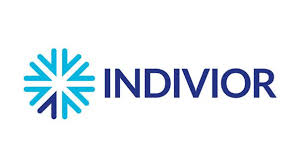
DOJ’s aggressive enforcement of the opioid industry is a striking example of the power of federal prosecutors when focused on an industry. Once prioritized for enforcement, DOJ has quickly brought together prosecutors and law enforcement to target corporate actors and companies with the full force of criminal and civil statutes.
In a significant case, DOJ announced the resolution of its criminal and civil investigations against Indivior pursuant to which Indivior agreed to plead guilty to making false statements, and agreed to pay a total of $600 million to resolve its liability for marketing of its drug Suboxone.
In 2019, Indivior’s former parent, Reckitt Benckiser Group (RB Group) agreed to a $1.4 billion resolution, along with a plea agreement with Indivior’s former CEO, Shaun Thaxter, announced last month.
In total, the illegal marketing of Suboxone has resulted in $2 billion in penalties, the largest resolution by DOJ against an opioid company.
Suboxone is a drug product used by recovering opioid addicts to reduce withdrawal symptoms when they are treated for opioid addiction. Suboxone contains buprenorphine, a powerful opioid.
Criminal Resolution
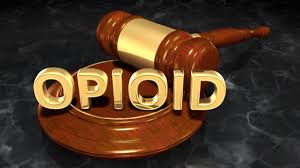
As part of its criminal guilty plea, Indivior admitted to making false statements to promote the film version of Suboxone to the Massachusetts Medicaid program (MassHealth) relating to the safety of Suboxone Film around children. The criminal fine, forfeiture and restitution totaled $289 million.
On June 30, 2020, Indivior’s former CEO Shaun Thaxter pleaded guilty to a misdemeanor for false and misleading representations to MassHealth.
In 2002, Indivior received approval to market Suboxone tablets for use in the treatment of opioid addiction. At that time, Indivior was an RG Group subsidiary. In December 2014, RB Group spun off Indivior. In 2019, Indivior was indicted for engaging in an illicit nationwide scheme to increase Suboxone prescriptions.
Indivior admitted that in October 2012 it sought to convince MassHealth to expand Medicaid coverage of Suboxone Film in Massachusetts and sent MassHealth false data indicating that Suboxone Film had the lowest rate of accidental pediatric exposure of all buprenorphine drugs in Massachusetts. This claim was false.
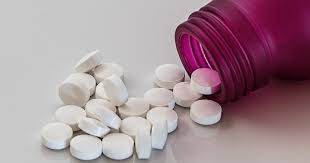
Indivior further admitted that this false information was also contained in marketing and promotional efforts directed at MassHealth which were overseen by top executives. As a result of these false representations, MassHealth provided access to Suboxone Film for patients with children under the age of six years of age.
DOJ’s resolution includes several requirements that are novel in scope and application. These include provisions that: (1) require Indivior to disband its Suboxone sales force and not reinstate it; (2) require Indivior’s CEO to personally certify, under penalty of perjury, on an annual basis, that Indivior was in compliance with the Food Drug and Cosmetic Act and did not commit health fraud; (3) prohibit Indivior from using data obtained from surveys of healthcare providers for marketing, sales and promotional purposes; (4) require Indivior to remove health care providers from its promotional programs who are at a high risk of inappropriate prescribing; and (5) make Indivior subject to contempt sanctions and reinstatement of the DPA charges if it violates the agreement.
Civil Settlement
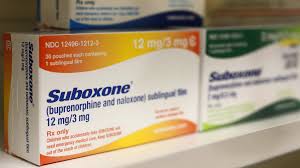
Under the civil settlement, Indivior agreed to pay $300 million ($209.3 million to federal government and $90.7 million to states) to resolve claims that the marketing of Suboxone involved false claims submitted to government health care programs.
From 2010 through 2015, Indivior (and its affiliated companies): (a) promoted the sale and use of Suboxone to physicians who were writing prescriptions that were not for medically accepted indications and that lacked a legitimate medical purpose, were issued without any counseling or psychological support, were for uses that were unsafe, ineffective and medically unnecessary, and were often diverted; (b) promoted the sale or use of Suboxone Film to physicians and state Medicaid agencies using false and misleading claims that Suboxone Film was less susceptible to diversion and abuse and less susceptible to accidental pediatric exposure than tablets; and (c) submitted a petition to the Food and Drug Administration claiming that Suboxone Tablet had been discontinued “due to safety concerns” about the tablet formulation and took other steps to delay the entry of generic competition for Suboxone in order to improperly control pricing of Suboxone, including pricing to federal healthcare programs.
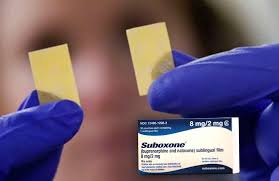
The civil settlement resolves six individual qui tam lawsuits brought by whistleblowers.
Corporate Integrity Agreement
Indivior executed a five-year CIA with the HHS-OIG, which requires Indivior implement numerous accountability and auditing provisions. Annually, top executives and the Board of Directors had to certify compliance. In addition, Indivior had to conduct annual risk assessments and other monitoring, and by independent review organizations audits.
Finally, Indivior entered into a separate agreement with the Federal Trade Commission under which it paid $10 million to resolve claims that it engaged in unfair methods of competition in violation of the Federal Trade Commission Act.
















2 Responses
[…] Volkov reports on two big enforcement actions in Pharma. Indivior and illegal marketing of opioid products. Taro Pharma and […]
[…] Volkov reports on two big enforcement actions in Pharma. Indivior and illegal marketing of opioid products. Taro Pharma and […]